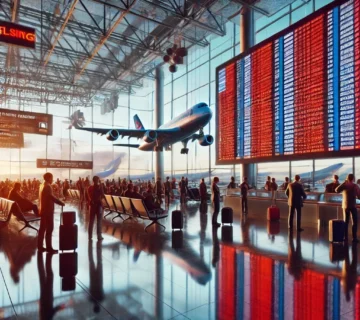
Another Airline Hit by Cyberattack, Resulting in Mass Cancellations
A recent distributed denial-of-service (DDoS) cyberattack on Japan Airlines, causing significant flight disruptions but resulting in no data breaches. This incident is examined within the broader context of increasing cybersecurity threats targeting the airline industry, highlighting past attacks and their substantial financial and operational consequences. The article explores various protective measures airlines can implement, including improved cybersecurity infrastructure and employee training, and emphasizes the importance of rapid response and transparent communication during such events. Finally, it promotes a specific cybersecurity firm, Technijian, and its services designed to help airlines mitigate these risks. ... Read More